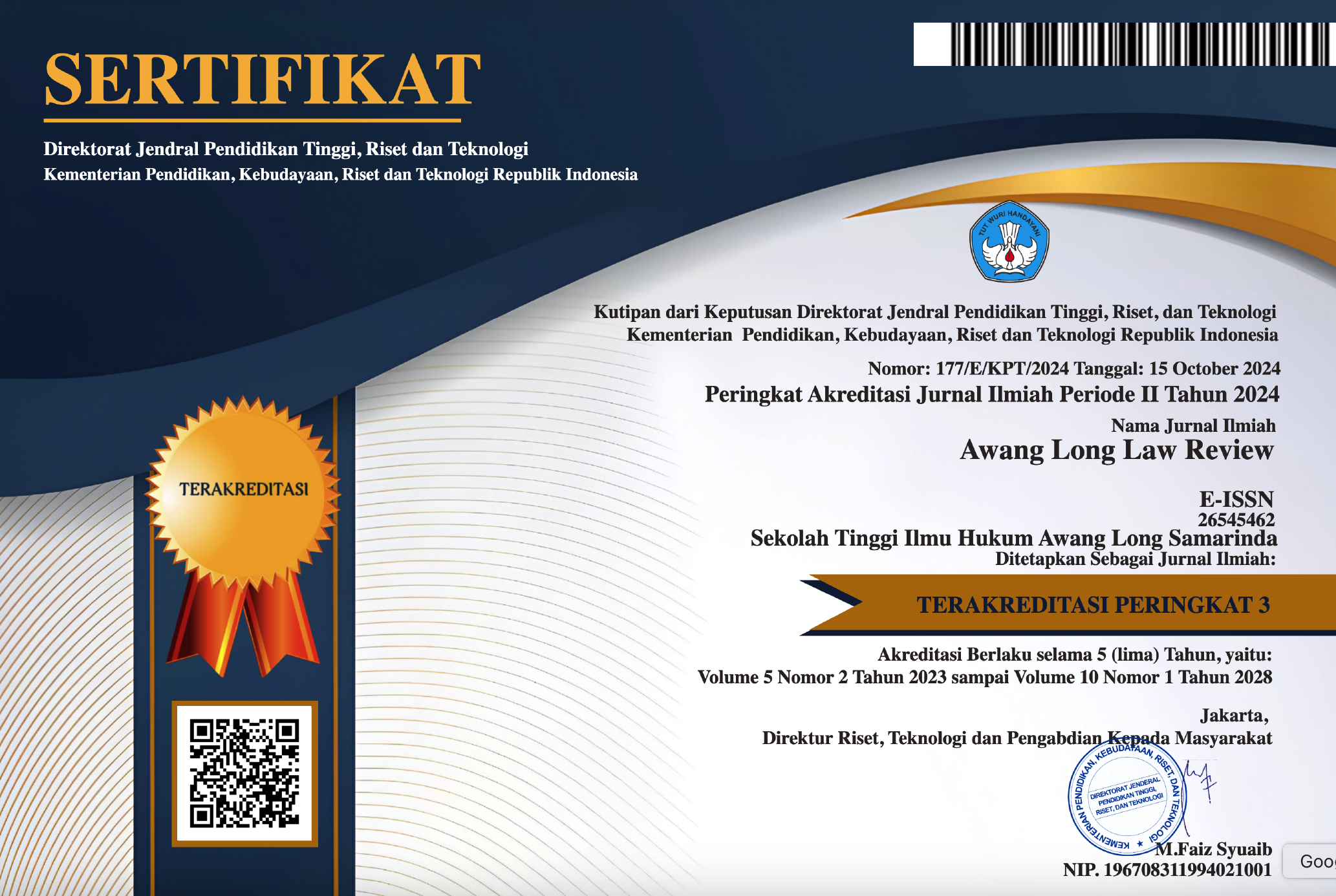POLEMIC OF THE CRIMINAL CODE BILL FROM THE PERSPECTIVE OF ADVOCATES
Abstract
Indonesia's existing Criminal Code (KUHP), a remnant from the Dutch East Indies colonial era, is regarded as outdated and disconnected from current societal realities. This has spurred the Indonesian Government to initiate a comprehensive update of the criminal provisions via the Draft Criminal Code (RUU KUHP), which has been in the making for several decades. The RUU KUHP aims to accommodate the evolving needs of the nation's criminal law system. However, this endeavour has sparked controversy, particularly regarding Articles 282 and 515 of the RUU KUHP, which are viewed as discrediting Advocates as independent enforcers of the law. These articles are claimed to be at odds with the Advocate Act, the lex specialis of the RUU KUHP, raising concerns about the potential impact on the professional status of Advocates. Moreover, Article 281 of the RUU KUHP has raised alarms due to its potential as a 'rubber article', susceptible to multiple interpretations, which could undermine the principle of legal certainty. This normative-juridical study utilises a descriptive-analytical methodology to analyse these contentious aspects of the RUU KUHP. It concludes that the provisions regarding Advocates conflict with the Advocate Act, and the ambiguity in Article 281 raise the risk of misuse and legal uncertainty. While the RUU KUHP signifies a crucial effort towards modernising the nation's criminal law system, these issues must be addressed to ensure its credibility and effectiveness.
Downloads
References
Arnas, Y., Ahmad, A., & Fajarianto, O. (2023). The Effectiveness of Learning Management System in Higher Education: A Case Study of Social Sciences Course Content. IJESS International Journal of Education and Social Science, 4(2), 114-118.
Barda Nawawi Arief. 2003. Kapita Selekta Hukum Pidana. Bandung: Citra Aditya Bakti.
C.S.T Kansil. 2002. Pengantar Ilmu Hukum. Jakarta: Balai Pustaka.
Dimas Abimayu, Erna Dewi, dan Eko Rahardjo. 2017. Analisis Kebijakan Formulasi Tentang Perbuatan yang Menghambat Proses Peradilan (Contempt of Court) Dalam Sistem Peradilan Indonesia. Poenale: Jurnal Bagian Hukum Pidana, Volume 5, Nomor 3.
Kitab Undang-Undang Hukum Pidana
Kitab Undang-Undang Hukum Perdata
Mohammad Nazir. 1983. Metode Penelitian. Jakarta: Ghalia Indonesia.
Sari, P. K., Arofatinajah, S., & Fajarianto, O. (2022). Development of Digital Comic on Thematic Learning to Improve Literature Skills of 5th Grade Students in Elementary School. JTP-Jurnal Teknologi Pendidikan, 24(1), 38-49.
Rancangan Undang-Undang Kitab Undang-Undang Hukum Pidana 2019
Soerjono Soekanto. 2007. Pengantar Penelitian Hukum. Jakarta: Universitas Indonesia (UI-Press).
Sutanto Nugroho dan Budhi Wisaksono. 2017. Pengaturan Tindak Pidana Contempt of Court Berdasarkan Sistem Hukum Pidana Indonesia. Diponegoro Law Journal, Volume 6, Nomor 2.
Undang-Undang Nomor 14 Tahun 1985 tentang Mahkamah Agung.
Undang-Undang Tahun 40 Tahun 1999 tentang Pers.
Undang-Undang Nomor 20 Tahun 2001 tentang Perubahan Atas Undang-Undang Nomor 31 Tahun 1999 tentang Pemberantasan Tindak Pidana Korupsi.
Undang-Undang Nomor 18 Tahun 2003 tentang Advokat.
Undang-Undang Nomor 48 Tahun 2009 tentang Kekuasaan Kehakiman.
Undang-Undang Nomor 12 Tahun 2011 tentang Pembentukan Peraturan Perundang-Undangan.
Copyright (c) 2023 Siti Sakina Soekasah

This work is licensed under a Creative Commons Attribution-ShareAlike 4.0 International License.







